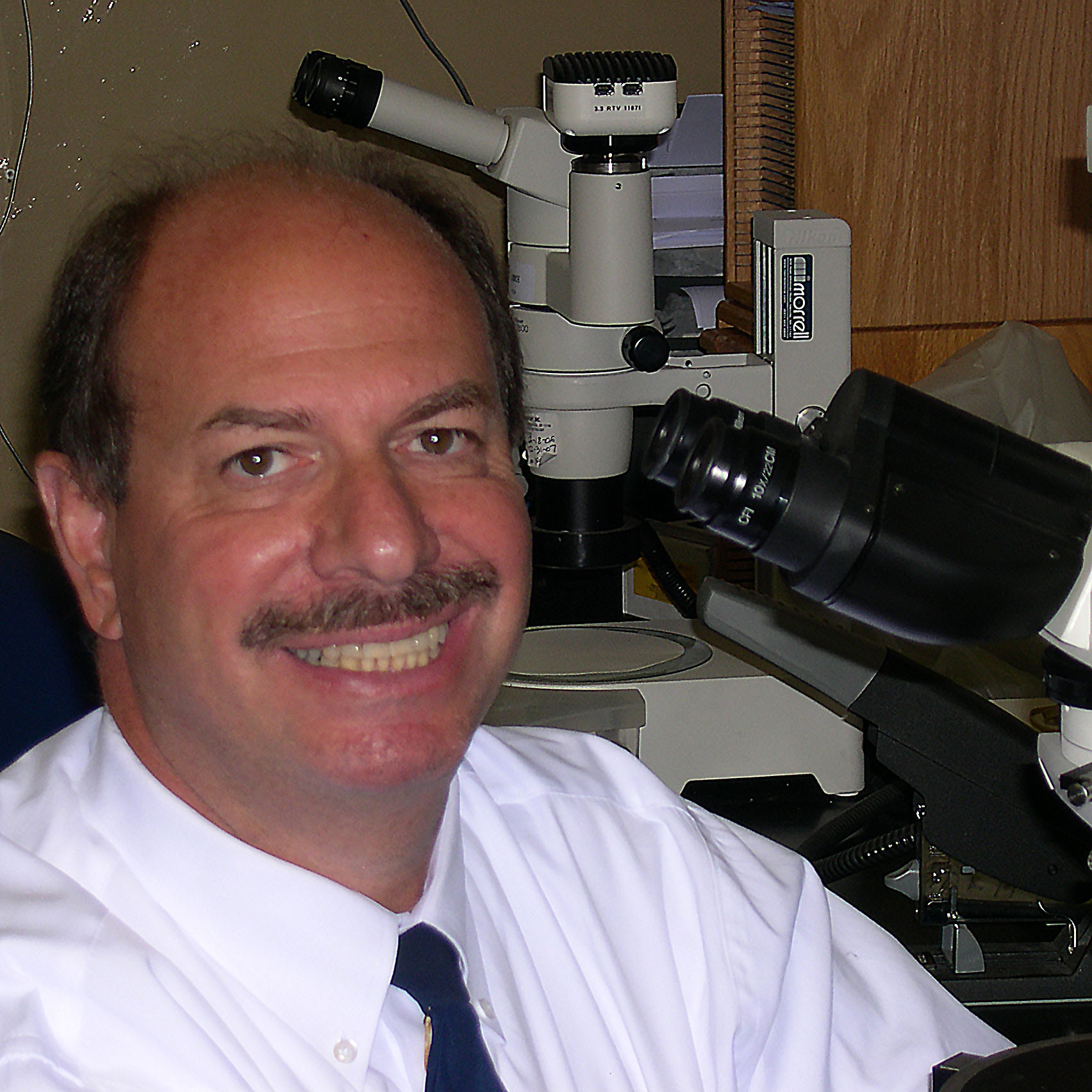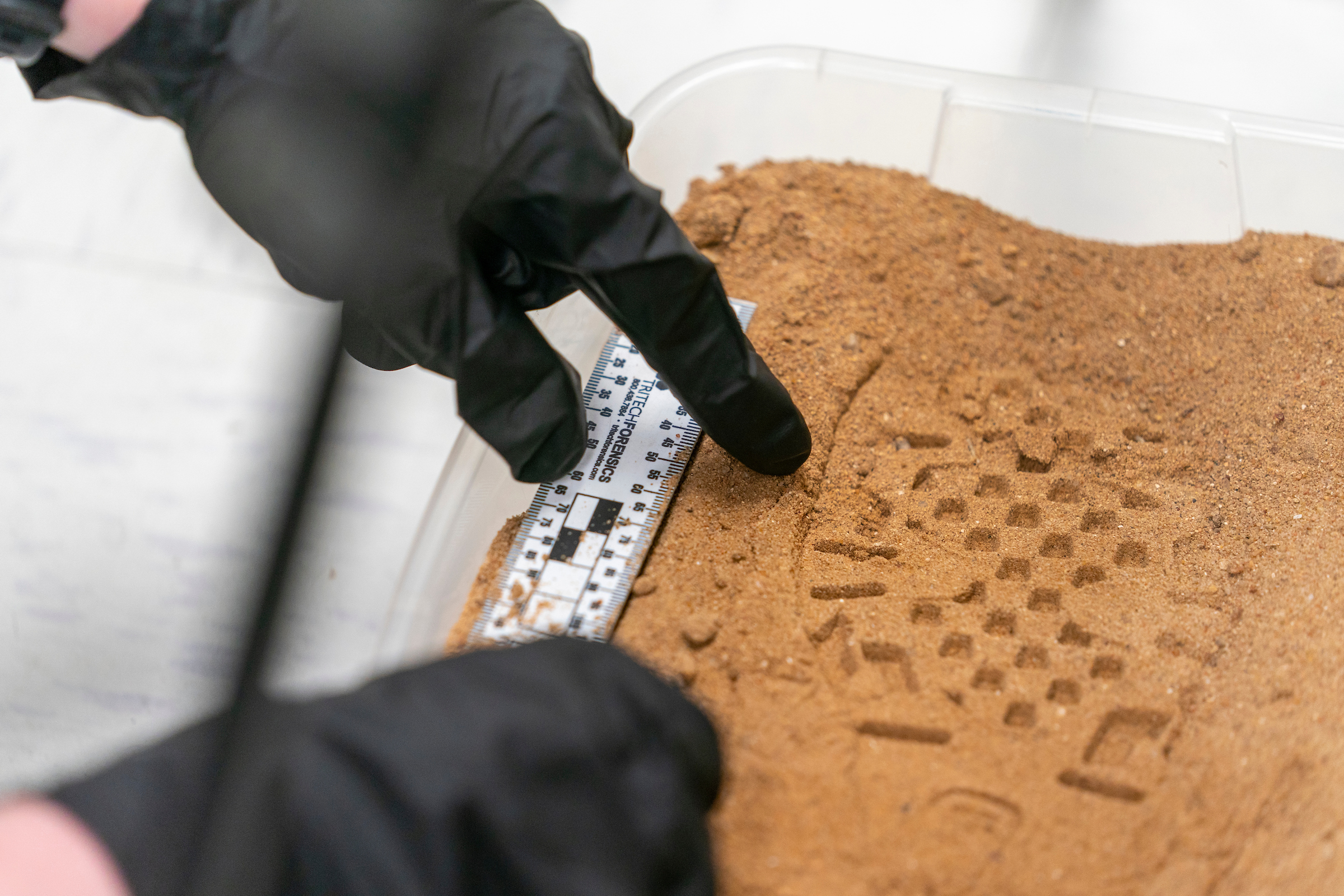
About Forensic and Investigative Sciences
Forensic and investigative scientists rely upon state-of-the-art scientific discoveries and technologies as tools to seek answers to critical questions in a variety of settings. Molecular, organismal, environmental, and ecological sources of information are often analyzed and interpreted in industrial, regulatory, legal, medical and associated professions.
Graduates of our accredited Forensic and Investigative Sciences program will be competitive for employment opportunities in quality assurance laboratories, homeland security and investigative services at local, state and national levels. Students will be prepared for opportunities to enter post-graduate studies or professional schools including medicine, law, and veterinary medicine.
Students are expected to complete courses in the semester they are outlined on the curriculum or with prior advisor approval. Students who deviate from the curriculum as outlined or planned with advisors may be forced to delay graduation.
We’re preparing students for more than a career as a crime scene investigator, like those glamorized on popular television programs. Here at Texas A&M University, the B.S. in Forensic and Investigative Sciences program prepares students for careers that involve the collection, preservation, processing and use of evidentiary information to solve problems.
Accreditation and Professional Licensure
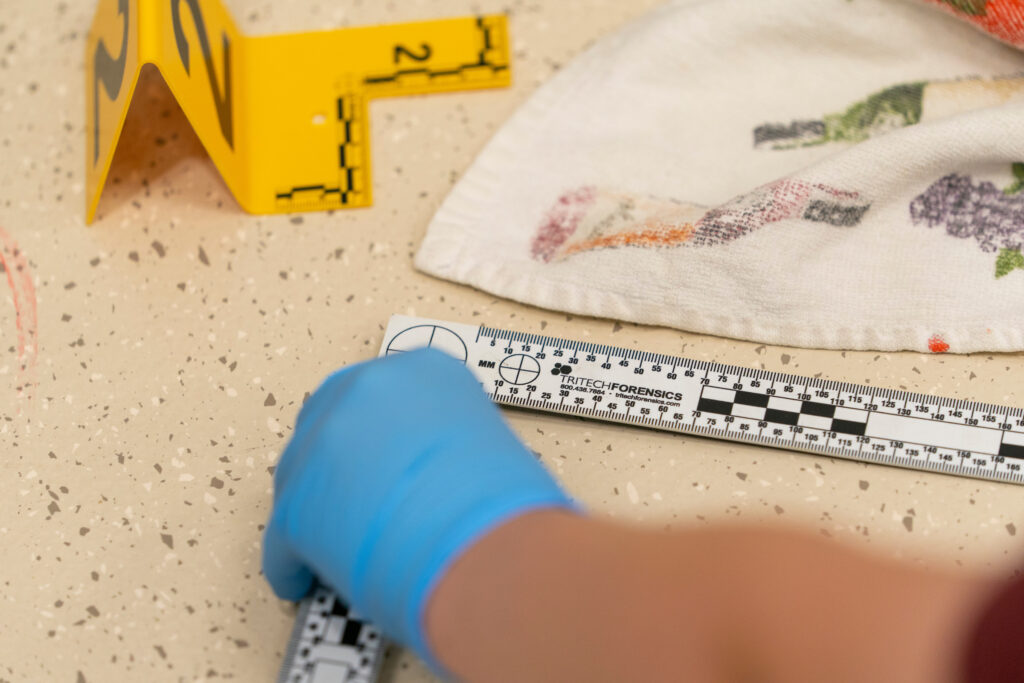
The B.S. Forensic and Investigative Sciences – Science Emphasis program is one of two bachelor’s degree programs in the state of Texas that is nationally accredited by the Forensic Science Education Programs Accreditation Commission (FEPAC) of the American Academy of Forensic Sciences.
Additionally, this program may lead to fulfilling requirements for a professional license or certification that is required or desired for employment. Professional licensure/certification requirements vary from state to state.
Vision, Mission, Goals and Program Objectives
Vision
The Forensic and Investigative Sciences program represents a diverse and dynamic community of students, faculty, staff, and researchers focused on establishing Texas A&M as a global leader in forensic education, research, and professional development. We aim to produce graduates who are not only highly skilled and knowledgeable but also ethical leaders in their field. By fostering innovation, community engagement, and international collaboration, we strive to advance the science of forensics and contribute to the pursuit of justice worldwide.
Mission
The Texas A&M Forensic and Investigative Sciences Program aims to be a leader in forensic education, research, and professional development. Our mission is to equip and prepare students with the knowledge, skills, and ethical foundation necessary to excel in various forensic science careers, contributing to the advancement of justice and public safety by providing them an inquiry and research-based learning experience to increase skills in critical thinking, problem solving, written and oral communication, and professional development.
Objectives
- Educational Excellence: We strive to provide a rigorous, interdisciplinary curriculum that integrates the latest scientific discoveries and technologies. Our program offers two emphases: Science and Pre-Law, catering to diverse career aspirations. We are committed to maintaining our FEPAC accreditation, ensuring our graduates meet the highest standards in forensic science education.
- Innovative Research: Our vision includes fostering a research-intensive environment where students and faculty collaborate on cutting-edge projects. By leveraging Texas A&M’s extensive resources and partnerships, we aim to contribute significantly to the body of forensic science knowledge, addressing contemporary challenges and developing new methodologies.
- Professional Development: We are dedicated to preparing our students for successful careers in forensic science. This includes offering hands-on training through internships, research opportunities, education abroad, and practical coursework. Our graduates will be competitive for positions in forensic laboratories, law enforcement agencies, and various governmental and private sectors.
- Community Engagement: We envision a program deeply integrated with the community, providing forensic expertise and support to local, state, and national agencies. Through outreach and public education initiatives, we aim to raise awareness about the importance of forensic science in the justice system.
- Ethical Leadership: Our program emphasizes the importance of ethical conduct and integrity in forensic science. We are committed to instilling these values in our students, ensuring they are prepared to handle the responsibilities and challenges of their profession with the utmost professionalism.
- Global Impact: We aspire to have a global impact by collaborating with international forensic science communities and participating in global research initiatives. Our goal is to contribute to the worldwide advancement of forensic science and to prepare our students to work in diverse, international contexts.
- Continuous Improvement: We are committed to continuous improvement, regularly updating our curriculum, facilities, and technologies to reflect the evolving landscape of forensic science. By staying at the forefront of educational and scientific advancements, we ensure our program remains relevant and impactful.
By adhering to these principles, the Texas A&M Forensic and Investigative Sciences Program will continue to be a beacon of excellence, producing highly skilled professionals who are ready to make significant contributions to the field of forensic science and to society as a whole.
Strategic Goals
- Strategic Goal 1: Strengthen educational programs through modernization of methods and experiential education.
- Continue to identify and query novel stakeholders to ensure our educational objectives meet the ever-changing needs of the public and private sector.
- Collaborate with local, professional forensic science training organizations to ensure our students have the most cutting-edge education upon graduation.
- Create courses and other educational experiences that focus on critical thinking, communication, and integration of a strong academic foundation to enable students to better develop critical thinking strategies and enhance written and oral communication skills to better serve our stakeholders.
- Creation of both internal and external opportunities for students to demonstrate competency of both written and oral communication of scientific topics to a variety of audiences.
- Develop and expand experiential learning opportunities through education abroad, short- and long-term exchange programs, and access to professional development offered to professionals in the industry.
- Expand our collaboration with professional schools, graduate schools, and other continuing education programs through establishment of 3+2 programs, plus one graduate programs, concurrent licensing programs, and specialized training for professional schools.
- Strategic Goal 2: Promote ethical practices and integrity and instill a strong ethical foundation in students to ensure the integrity of forensic science practices.
- Establish a code of conduct for participants in the FIVS program that aligns with professional standards in forensic science.
- Integrate ethics training into all aspects of the curriculum, emphasizing the importance of unbiased and accurate forensic analysis and critical evaluation of situations.
- Encourage participation in professional organizations and adherence to their ethical guidelines
- Strategic Goal 3: Foster Community Engagement and Public Education through enhancement of the program’s impact on the community and raise public awareness about the role of forensic science in justice.
- Partner with local, state, and national law enforcement agencies to provide forensic expertise and support through student, faculty, and professional involvement.
- Organize public seminars, workshops, and outreach programs to educate the community about forensic science.
- Facilitate internships, educational experiences, and other interactions between students, faculty, and professional agencies to encourage hands on learning coupled with community service.
- Strategic Goal 4: Expand global collaboration and impact and position the program as a leader in the global forensic science community.
- Establish international partnerships for research, student exchange programs, and collaborative projects.
- Participate in global forensic science conferences and contribute to international research and education initiatives.
- Promote the student’s research and educational achievements through publications in international journals and presentations at global forums.
- Strategic Goal 5: Ensure continuous improvement and innovation through ongoing evaluation and adaptation.
- Formalize regular assessment and updates of curriculum, facilities, faculty, and technologies to reflect the latest advancements in forensic science.
- Implement and formalize various feedback mechanisms for students, faculty, and industry partners to identify areas of improvement.
- Pursue funding opportunities, grants, and alumni donations to support innovate educational initiatives and research by and for students.
By pursuing these strategic goals, the Texas A&M Forensic and Investigative Sciences Program will continue to advance the field of forensic science, contribute to the justice system, and prepare students for impactful careers.
Performance disclosures:
Attrition, Retention, and Graduation Rates
| Academic Year | Degrees Awarded1 | Retained Students2 | Change of Curriculum Students3 | Transfer Students4 |
|---|---|---|---|---|
| 2021-22 | 35 | |||
| 2020-21 | 28 | |||
| 2019-20 | 20 | 43 | 1 | 4 |
| 2018-19 | 24 | 34 | 6 | 1 |
| 2017-18 | 21 | 41 | 4 | 3 |
Job Placement Rates
The Forensic and Investigative Sciences program surveys each student that graduated with a FIVS degree every year to track the employment and continuing education of the graduates. Forty-seven percent knowledge rate* was realized from this survey. Students were asked their employment or graduate studies status, and if they were employed or studying “in field” (i.e. within the forensics sciences) or “outside of field” (i.e. in an area not associated with the forensic sciences).
Highlights
- A total of 88 students responded to this survey
- 68% of respondents are currently employed
- 62% of employed students are working in forensics or an associated** field
- 36% are employed outside of the forensics field.
- 1% of respondents are currently unemployed
- 31% of students are in graduate school, law school, medical school, or other professional continuing education
- 69% of these students are studying forensics or an associated field
- 31% are studying outside of the forensics field
Student Achievement Data 2009-2020
| Receiving Degrees | % Survey Response | % Continued Education | % In Field |
|---|---|---|---|
| 188 | 47% | 50% | 63% |

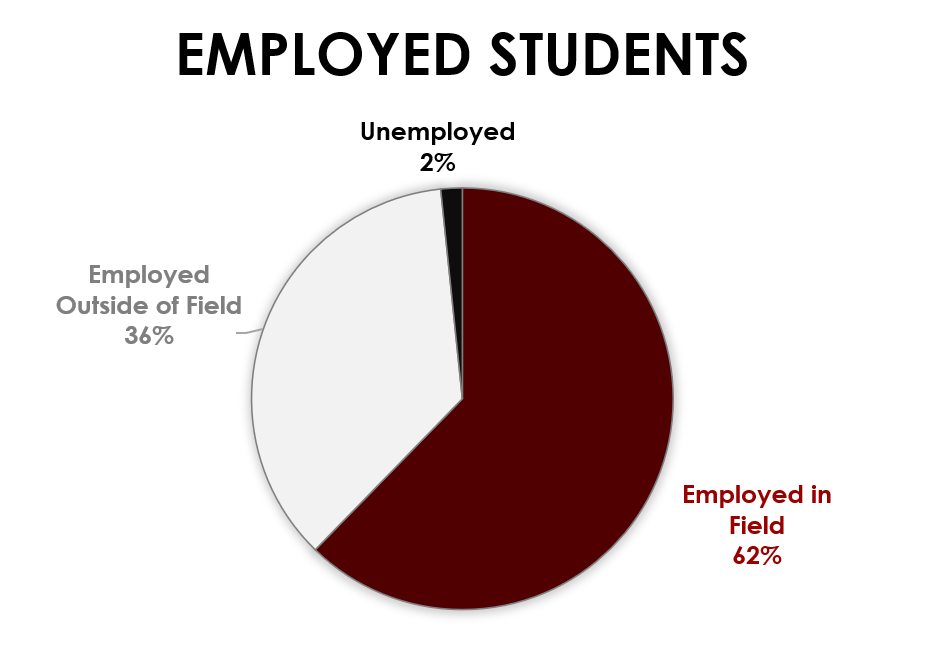
| Graduation Year | Students Receiving Degrees | % Survey Response | % Continued Education | % Employed | % Employed in the Field | % Unemployed | % Currently in Graduate School | % Studying in Field |
|---|---|---|---|---|---|---|---|---|
| 2020 | 24 | 71% | 76% | 47% | 75% | 0% | 53% | 67% |
| 2019 | 24 | 58% | 36% | 64% | 44% | 7% | 29% | 75% |
| 2018 | 14 | 64% | 78% | 44% | 100% | 0% | 56% | 80% |
| 2017 | 23 | 61% | 43% | 57% | 75% | 0% | 43% | 50% |
| 2016 | 18 | 44% | 25% | 75% | 83% | 0% | 13% | 100% |
| 2015 | 21 | 19% | 20% | 100% | 40% | 0% | 0% | 0% |
| 2014 | 17 | 29% | 40% | 100% | 20% | 0% | 0% | 0% |
| 2013 | 23 | 39% | 44% | 89% | 50% | 0% | 11% | 100% |
| 2012 | 12 | 17% | 67% | 100% | 100% | 0% | 0% | 0% |
| 2011 | 6 | 33% | 50% | 100% | 50% | 0% | 0% | 0% |
| 2010 | 5 | 40% | 50% | 100 | 50 | 0 | 0 | 0 |
| 2009 | 1 | 100% | 100% | 100 | 100 | 0 | 0 | 0 |
Employment Statistics
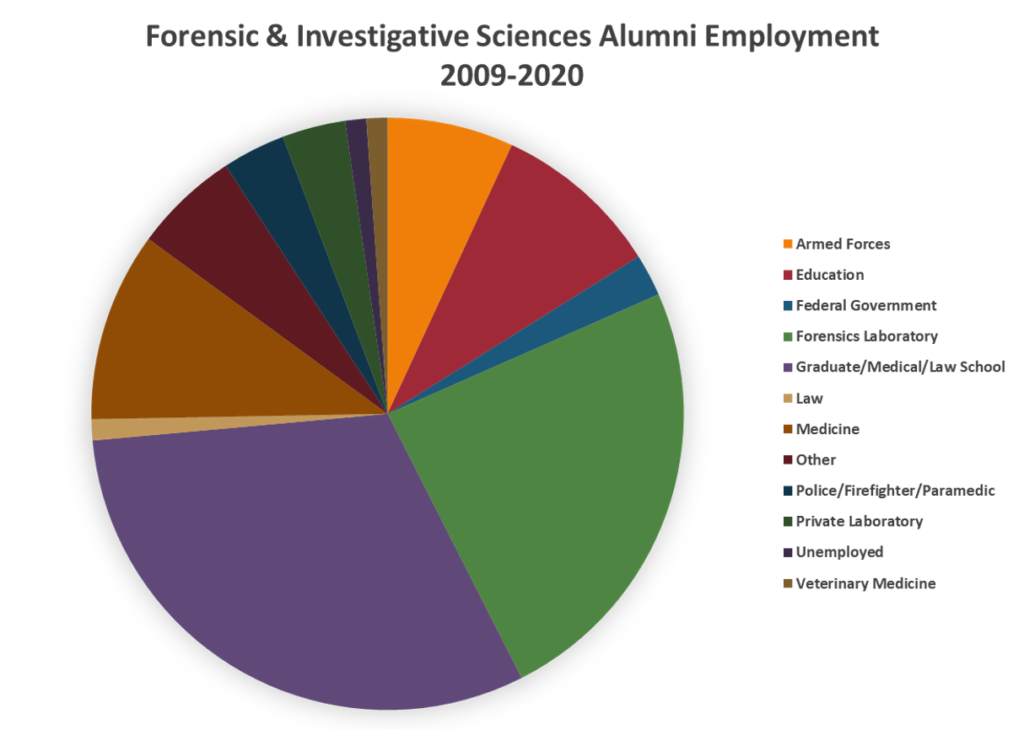
Employment Advancement
The Forensic and Investigative Sciences program produces students with strong research, analysis, and problem-solving skills abilities—essential skills that are competitive across many industries. Our graduates are employed in a variety of sectors. For more details about what our students pursue after graduation, see Former Forensics Students—Where are they Now?
Academic
- Baylor University
- Boswell High School
- Dallas Independent School District
- Everman High School
- IDEA College Preparatory
- Salt Lake City Public School District
- St. George’s University
- Texas A&M University
- Waller ISD
- Yes Prep Public Schools District
Industry
- A&M Forensics and Engineering Inc.
- Americorps
- Biofire
- Brenner Spiller & Archer, LLP
- Fujifilm Diosynth Biotechnologies
- H-E-B Pharmacy
- Legacy Realty Group
- Quest Diagnostics
- Republic Spine and Pain of Austin
- Taylor Farms
Local Government
- Arlington, TX Police Department
- College Station Police Department
- Collin County Sheriff’s Office
- Dallas County Crime Lab
- Dallas Police Department
- Gatesville, TX Police Department
- Harris County Institute of Forensic Sciences
- McKinney Police Department
- Plano Police Department
- Tarrant County
- Texas DPS Crime Laboratory
- Unified Metropolitan Forensic Crime Laboratory, Colorado
Medical
- Baylor Scott and White
- DuPont Veterinary Center
- Houston Methodist
- Steward Healthcare
- UT Southwestern Medical Center
National Government / Military
- National Health Services, UK
- U.S. Air Force
- U.S. Army
- U.S. Customs and Border Protection
- U.S. Marine Corps
- U.S. Navy
- United States Federal Government
Acceptance into Graduate Programs
Our students are well-prepared to succeed in graduate school, law school, medical school, and professional training programs. Below are some of the institutions alumni have attended. For more details about what our students pursue after graduation, see Former Forensics Students—Where are they Now?
- Bush School of Government and Public Service
- Creighton University
- Dallas Fort Worth Fire Academy
- Johns Hopkins University
- McGovern Medical School
- Michigan State University
- Mississippi State University
- Sam Houston State University
- Texas A&M University
- Texas A&M University College of Medicine
- Texas A&M University School of Law
- Texas State University
- Texas Tech University
- Texas Tech University
- University of Alabama
- University of Colorado
- University of Edinburgh, Scotland
- University of North Texas
- University of Texas Medical Branch
- UTMB School of Nursing
- West Virginia University College of Law
Internships
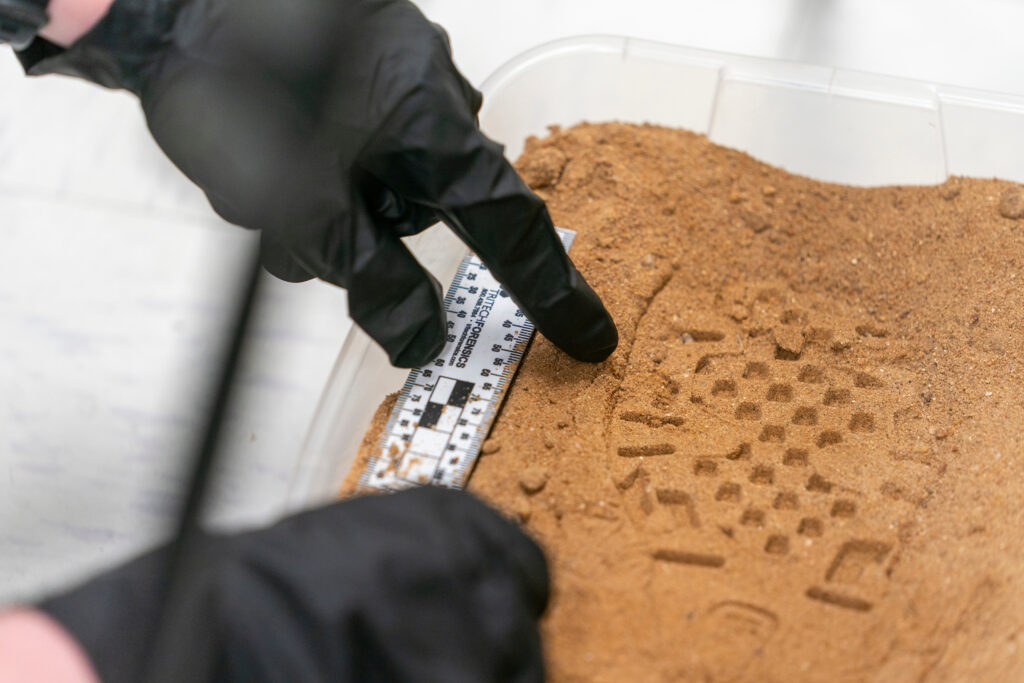
Forensic Science Internships offer a unique, immersive experience for students and recent graduates keen on applying their theoretical knowledge to real-world investigations. These internships, which can be found in various settings including crime laboratories, medical examiner offices, and law enforcement agencies, provide a hands-on approach to learning the intricacies of forensic analysis. Interns gain valuable experience by assisting in the examination of evidence, observing autopsy procedures, participating in crime scene investigations, and working alongside seasoned forensic professionals. Through these experiences, interns not only enhance their technical skills but also develop a deeper understanding of the legal and ethical considerations in forensic science. Such internships are pivotal in shaping the next generation of forensic scientists, ready to contribute to the pursuit of justice.
Program Requirements
Forensic and Investigative Sciences (BS – Science Emphasis), an accredited program by the Forensic Science Education Programs Accreditation Commission (FEPAC), is a life sciences-based education, which develops skills in problem solving and critical thinking, essential for many career opportunities.
Faculty
Adrienne Brundage
Instructional Associate Professor
Associate Department Head for Undergraduate EducationDirector of the Forensic and Investigative Sciences ProgramCraig Coates
Instructional Professor
Associate Department Head for Academic ProgramsAssociate Dean for Programmatic SuccessJennifer Gillett-Kaufman
Instructional Associate Professor
Jeff Tomberlin
Professor
AgriLife Research FellowPresidential Impact Fellow
Director National Science Foundation Center for Environmental Sustainability Through Insect Farming
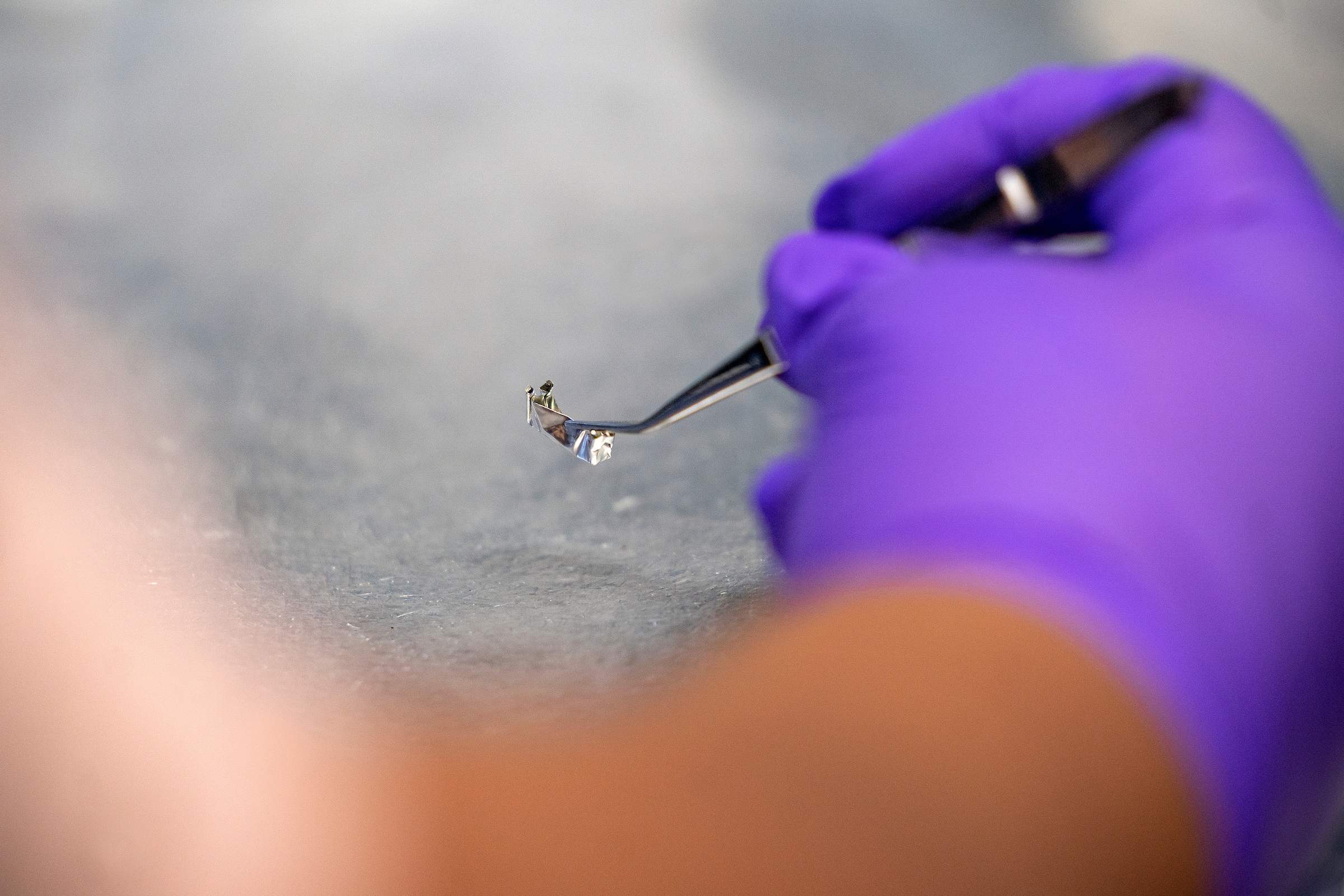
Professional Licensure and Certification Disclosure Statement
The B.S. Forensic and Investigative Sciences program may lead to fulfilling requirements for a professional license or certification that is required or desired for employment. Professional licensure/certification requirements vary from state to state, which may affect a student’s ability to apply for a professional license/certification upon the completion of the program. The U.S. Department of Education regulation, 34 CFR 668.43 (a) (5) (v), requires an institution to disclose whether the program will fulfill educational requirements for licensure or certification for each state. The administrative departments that offer the programs have made the following determination regarding their curriculum.
We recommend students contact the appropriate licensing agencies or organizations to seek the most up-to-date information about licensure and certification requirements before beginning the program. For more information, visit: http://www.txcourts.gov/fsc/licensing/.
The B.S. Forensic and Investigative Sciences meets the requirements for the Texas Forensic Science Commission Analyst and Technician License. A determination has not been made for license or certification programs in any other U.S. state or territory.
Forensic and Investigative Sciences Enhancement Endowment
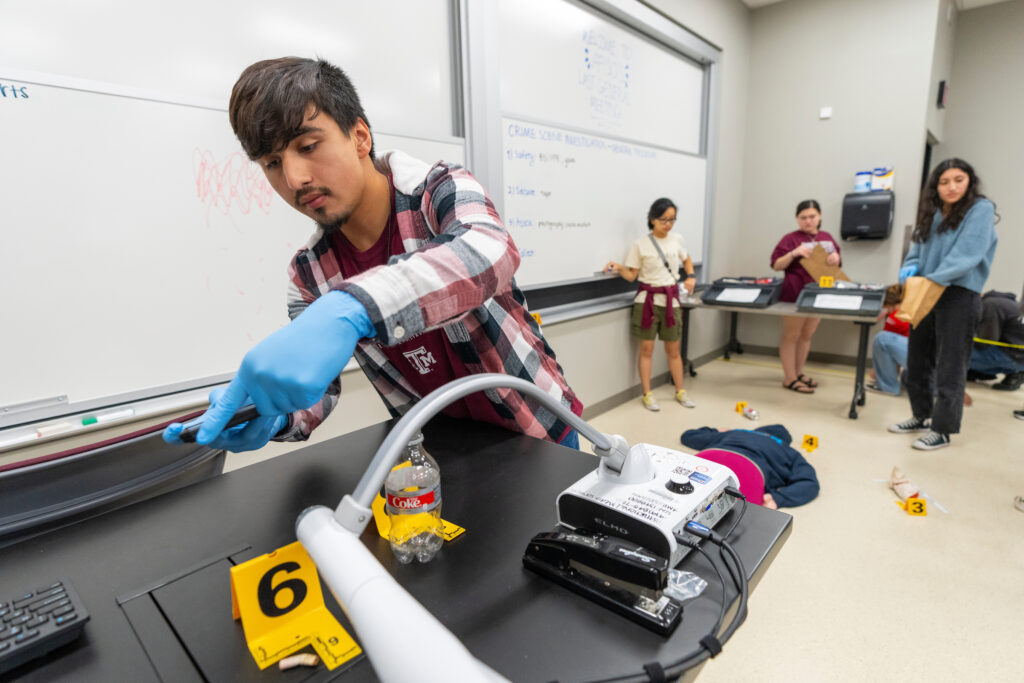
The Forensic and Investigative Sciences Enhancement Endowment was established to help preserve quality education for prospective and current students wishing to enroll in the Forensic and Investigative Sciences Program at Texas A&M University.
Your donation will go towards supporting the teaching, research and educational outreach activities that the Department does throughout the academic year with the Forensic and Investigative Sciences program such as student scholarships, faculty and staff awards, classroom and curriculum support, and distance learning.
Online gifts to the Forensic and Investigative Sciences Enhancement Endowment can be made through the Texas A&M Foundation. To discuss this opportunity and others, please contact Carla Smith.
Career Options in Forensic and Investigative Science
Graduates of the Forensic and Investigative Sciences program are competitive for employment opportunities in quality assurance laboratories, homeland security and investigative services at local, state and national levels. Graduates will also be well prepared for success post-graduate studies or professional schools including medicine, law and veterinary medicine.
The American Academy of Forensic Sciences maintains a Job Board for forensic science professionals. Students can also explore prospective careers in this major through the Texas A&M Career Center.
| Job Title | Description | Average Salary |
| Crime Scene Investigator | Work with law enforcement to identify, isolate and secure the crime scene and preserve, collect and record evidence at crime scenes | $48,725 |
| FBI Special Agent | Conduct surveillance, gather and analyze data, monitor online activities, collect evidence | $73,322 |
| Forensic Nurse | Work with doctors on helping to identify and treat victims, preserving evidence, and working with law enforcement in solving crimes | $42,000 |
| Forensic Chemist | Analyze physical evidence and samples for clues to solve crimes. Be able to clearly and concisely respond to challenges to their findings in a court of law | $59,252 |
Correspondence Contacts
- Program Matters and Outreach: Adrienne Brundage
- Scientific Inquiries: Contact a member of the Interdisciplinary Faculty Group
- FEPAC Accreditation: Adrienne Brundage



